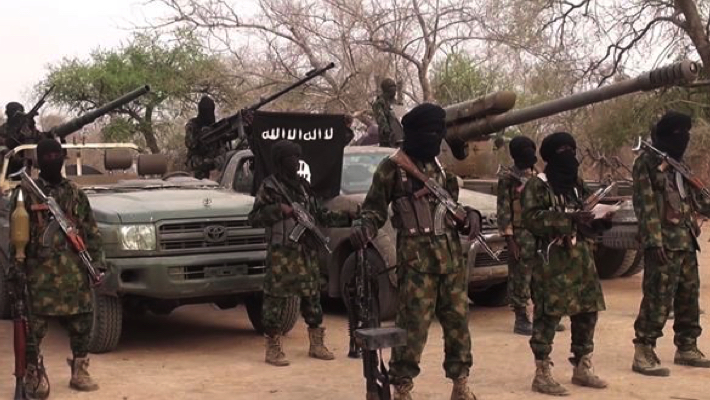Politics
JUST IN: Boko Haram terrorists kill 33 wives of ISWAP in retaliation attack

- Angry Boko Haram terrorists have killed 33 wives of ISWAP
- The attack paid off as the ISWAP neutralized 15 Boko Haram terrorists including a unit Commander
In Sambisa, Boko Haram terrorists have murdered 33 wives of Islamic State of West African Province, ISWAP, terrorists in order to exact revenge for the murder of their (BHT) Commander, Malam Aboubakar (Munzir), and 15 other fighters.
Remember that hundreds of fighters equipped with weaponry from Mandara Mountain have been fighting the ISWAP in Sambisa Forest since December 3 under the direction of Ali Ngulde, a prominent Boko Haram leader in charge of Mandara Mountain.
According to sources, the terrorist organization Jama’at Ahl as-Sunnah lid-Da’wah wa’l-Jihd (Boko Haram) invited the Islamic State of West African Province (ISWAP) to a failed discussion by saying it was willing to surrender itself (mubayi’a) to IS/ISWAP leadership.
When asked about the massacre, Zagazola Makama, a security analyst and counterinsurgency expert in Lake Chad, said, “Unbeknownst to the ISWAP group, Ngulde, and his crew had prepared an ambush against them in which at least 12 of them were killed in Yuwe while others escaped with gunshot wounds.
“In the aftermath of the encounters, Boko Haram members seized four Hilux trucks mounted with weapons belonging to their rivals and burnt another.
“Shortly after the victory, the Boko Haram fighters mobilized more fighters from Abu Ikilima’s camp at Gaizuwa, Gabchari, Mantari, and Mallum Masari to attack more ISWAP positions in Ukuba, Arra and Sabil Huda and Farisu, killing about 23 more fighters.
“A few hours later, a top ISWAP leader, Ba’ana Chingori, called for a declaration of war and led a column of fighters to carry out reprisal attacks on the Boko Haram in Farisu.
“The attack paid off as the ISWAP neutralized 15 Boko Haram terrorists including a unit Commander, Malam Aboubakar (Munzir), and seized 7 motorcycles from them.
“The ISWAP group later retreated and took a position at the camp of Izzah.
“Thereafter, they moved to Garin Abbah, located about 2 kilometers where they pinned down to wait for the Boko Haram.
READ ALSO: ‘Nigerian govt won’t end banditry, they benefit from it’ terrorist Bello Turji tells
“But instead of going to meet the ISWAP rivals to continue the fight, the Boko-Haram elements did a detour and headed to where ISWAP wives are located and killed 33 of them,” the source said.
Meanwhile, according to Peter Obi, the Labour Party’s (LP) presidential candidate, the North-East region’s high rate of youth unemployment is the main cause of insecurity there because thousands of young people there begin each day without access to food or housing.
This was said by Obi on Monday during a meeting in Abuja with several North-East stakeholders and reported by ChannelsTv
He claims that the Northeast has the capacity to both feed the nation and produce enough cash crops for export in addition to having a vast amount of arable land. If he wins the presidential election the following year, he promised that his administration will make that a reality.
When idle youth engage in legitimate enterprises, such as agriculture and business, he claimed, insecurity will be a thing of the past and the nation will go from consumption to production.
Obi said, “Youth unemployment is nearing 50 percent, so you have millions of youth in their productive age doing nothing, not knowing where the next meal will come from. With that situation, you are going to have crises; the crisis of insecurity, the crisis of banditry, the crisis of kidnapping.
“What I and Datti (Baba-Ahmed) are promising you is number one; that we have the best combination, the best experience to start tackling the issue of security and I will say this, hold us responsible. Let nobody tell you we cannot solve the issue of insecurity in Nigeria, it can be stopped and done very quickly.
“We want to unite Nigeria, we want to see Nigerians being proud of their country again. We want to remove Nigeria from where it is today, from consumption to production and when you do that, you start pulling people out of poverty.”
